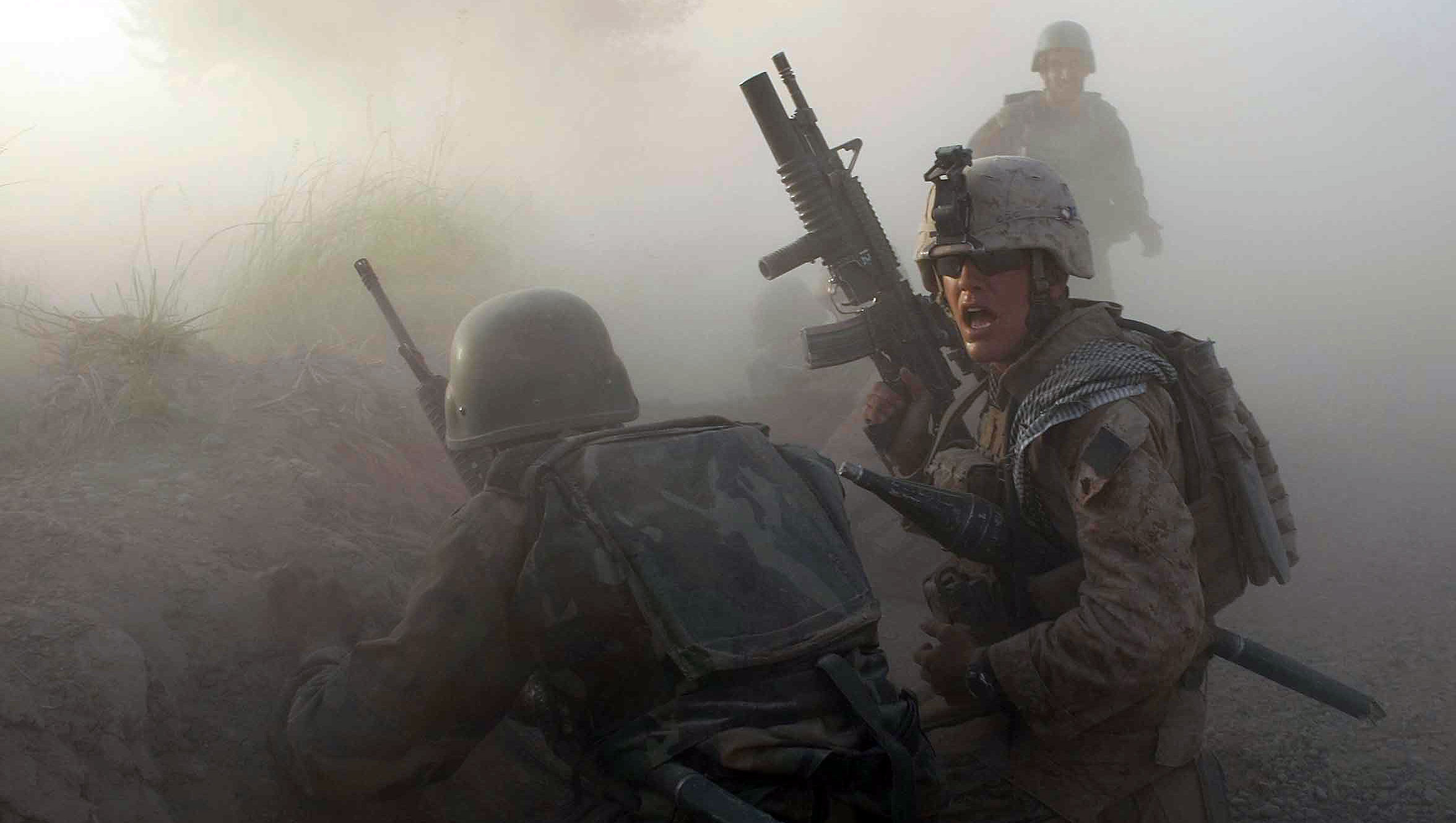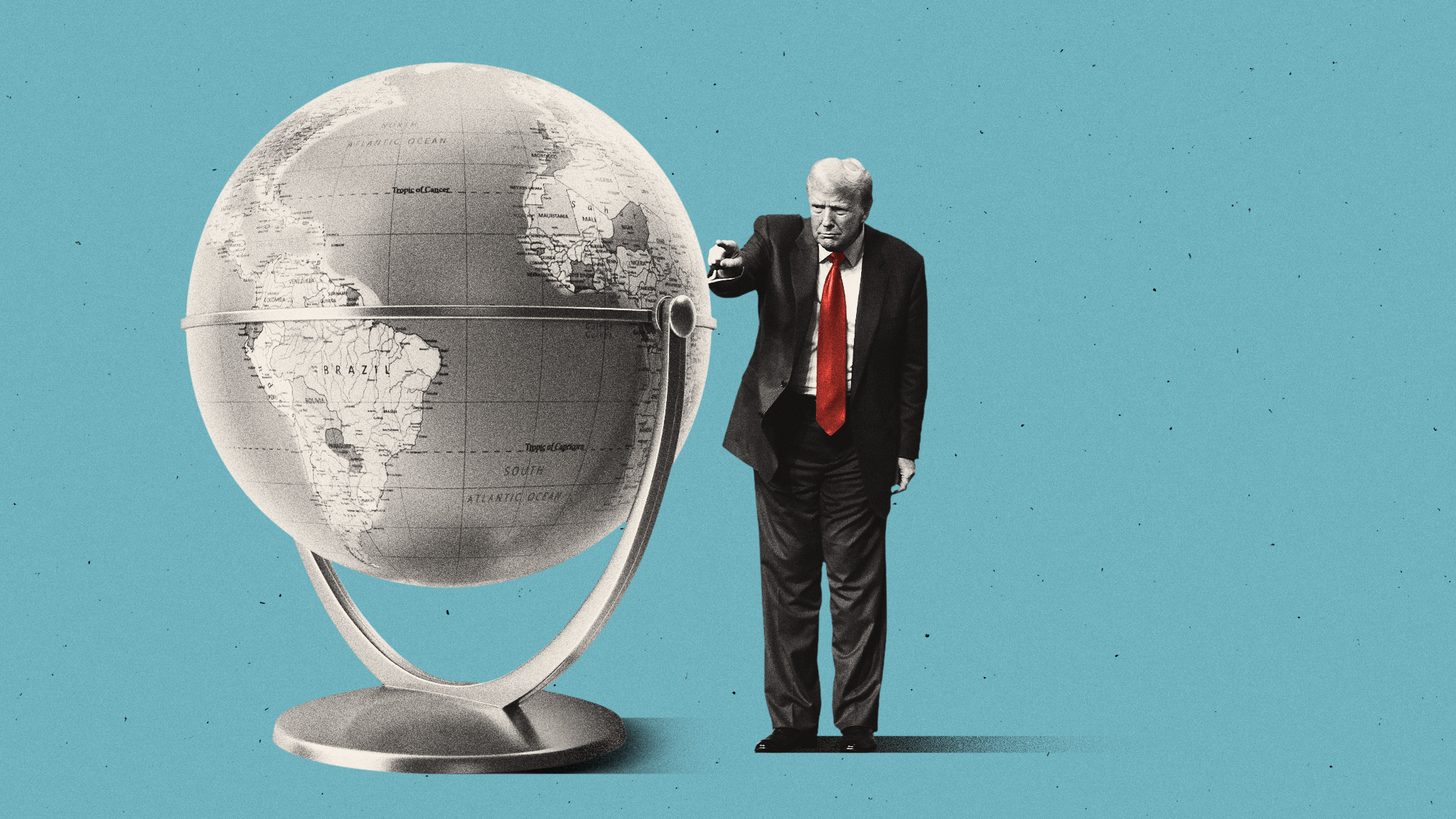Behind the Russian plot to pay Taliban for killing US troops
Intelligence sources says British soldiers also targeted in covert operation in Afghanistan

A free daily email with the biggest news stories of the day – and the best features from TheWeek.com
You are now subscribed
Your newsletter sign-up was successful
The Russian military unit that poisoned former double agent Sergei Skripal has been paying Taliban fighters to kill American troops serving in Afghanistan, according to US intelligence reports.
In a “significant and provocative escalation” of the Putin government’s covert activities, Russian agents “secretly offered bounties to Taliban-linked militants for killing coalition forces”, says The New York Times (NYT).
The payments “are believed to have resulted in the deaths of several US service members”, The Washington Post reports, citing “intelligence gleaned from US military interrogations of captured militants in recent months”.
The Week
Escape your echo chamber. Get the facts behind the news, plus analysis from multiple perspectives.

Sign up for The Week's Free Newsletters
From our morning news briefing to a weekly Good News Newsletter, get the best of The Week delivered directly to your inbox.
From our morning news briefing to a weekly Good News Newsletter, get the best of The Week delivered directly to your inbox.
British troops were also targeted, an unnamed “European intelligence official” told CNN - although whether any died as a result of the operation is unclear.
Both Russia and the Taliban have denied the allegations. “These kinds of deals with the Russian intelligence agency are baseless,” said Taliban spokesperson Zabihullah Mujahid. “Our target killings and assassinations were ongoing in years before, and we did it on our own resources.”
Donald Trump has also dismissed the reports as “fake news”, but other intelligence agencies have offered unofficial corroboration.
“British sources did not deny the accuracy of the allegations”, but rather “gave every indication that the report of bounties being offered to the Taliban was based on fact”, says The Times.
A free daily email with the biggest news stories of the day – and the best features from TheWeek.com
–––––––––––––––––––––––––––––––For a round-up of the most important stories from around the world - and a concise, refreshing and balanced take on the week’s news agenda - try The Week magazine. Start your trial subscription today –––––––––––––––––––––––––––––––
Who was responsible?
The US government believes the operation “to be the handiwork of Unit 29155, an arm of Russia’s military intelligence agency, known widely as the GRU”, says the NYT.
The Times adds: “This is the elite subversion and assassination wing of the GRU, Russia’s military intelligence arm, whose agents were charged with the attempted murder of Sergei and Yulia Skripal in Salisbury in 2018.”
The GRU was also “at the centre of Moscow’s covert efforts to interfere in the 2016 presidential election”, according to the NYT.
Who knew what and when?
“There was discussion as far back as February and March in the US intelligence community and among the top military commanders about the Russian operation,” says CNN. The claims were reportedly taken seriously enough to result in “some efforts at protecting US forces”.
According to the NYT, “the intelligence finding was briefed to President Trump, and the White House’s National Security Council discussed the problem at an interagency meeting in late March”.
That claim has been strongly disputed by White House press secretary Kayleigh McEnany, who said: “Neither the president nor the vice president were briefed on the alleged Russian bounty intelligence.”
Trump has repeated that denial, tweeting that his intelligence services “did not find this info credible, and therefore did not report it to me”.
However, a former senior Pentagon official told The Times that “it beggars the imagination” that the president would not have been briefed. “It suggests gross dereliction of duty by senior US government officials or a colossal breakdown of the national security decision-making process,” he told the newspaper.
What will happen next?
“The issue is not when the president was briefed,” a source told The Washington Post, “but rather, now that you are aware of it, what are you going to do about it?”
Even Senator Lindsey Graham, a vocal Trump ally, said it was “imperative Congress get to the bottom of” the allegations.
But it remains “unclear whether [Trump] will choose to take action”, says Vox.
The reports - and Trump’s furious reaction - has provided his critics with “further evidence that the president has failed to adequately curb the influence of Russia and has instead sought to foster a cosy relationship with Russian President Vladimir Putin”, says NPR.
Democratic presidential nominee Joe Biden put it more bluntly.
“His entire presidency has been a gift to Putin,” Biden said, “but this is beyond the pale.”
–––––––––––––––––––––––––––––––For a round-up of the most important stories from around the world - and a concise, refreshing and balanced take on the week’s news agenda - try The Week magazine. Start your trial subscription today –––––––––––––––––––––––––––––––
-
 The ‘ravenous’ demand for Cornish minerals
The ‘ravenous’ demand for Cornish mineralsUnder the Radar Growing need for critical minerals to power tech has intensified ‘appetite’ for lithium, which could be a ‘huge boon’ for local economy
-
 Why are election experts taking Trump’s midterm threats seriously?
Why are election experts taking Trump’s midterm threats seriously?IN THE SPOTLIGHT As the president muses about polling place deployments and a centralized electoral system aimed at one-party control, lawmakers are taking this administration at its word
-
 ‘Restaurateurs have become millionaires’
‘Restaurateurs have become millionaires’Instant Opinion Opinion, comment and editorials of the day
-
 Munich Security Conference: a showdown between Europe and Trump?
Munich Security Conference: a showdown between Europe and Trump?Today’s Big Question Report suggests European leaders believe they can no longer rely on the US for military support – but decoupling is easier said than done
-
 New START: the final US-Russia nuclear treaty about to expire
New START: the final US-Russia nuclear treaty about to expireThe Explainer The last agreement between Washington and Moscow expires within weeks
-
 What would a UK deployment to Ukraine look like?
What would a UK deployment to Ukraine look like?Today's Big Question Security agreement commits British and French forces in event of ceasefire
-
 Would Europe defend Greenland from US aggression?
Would Europe defend Greenland from US aggression?Today’s Big Question ‘Mildness’ of EU pushback against Trump provocation ‘illustrates the bind Europe finds itself in’
-
 Greenland, Colombia, Cuba: where is Donald Trump eyeing up next?
Greenland, Colombia, Cuba: where is Donald Trump eyeing up next?Today's Big Question Ousting Venezuela’s leader could embolden the US administration to exert its dominance elsewhere
-
 Did Trump just end the US-Europe alliance?
Did Trump just end the US-Europe alliance?Today's Big Question New US national security policy drops ‘grenade’ on Europe and should serve as ‘the mother of all wake-up calls’
-
 Trump peace deal: an offer Zelenskyy can’t refuse?
Trump peace deal: an offer Zelenskyy can’t refuse?Today’s Big Question ‘Unpalatable’ US plan may strengthen embattled Ukrainian president at home
-
 Vladimir Putin’s ‘nuclear tsunami’ missile
Vladimir Putin’s ‘nuclear tsunami’ missileThe Explainer Russian president has boasted that there is no way to intercept the new weapon